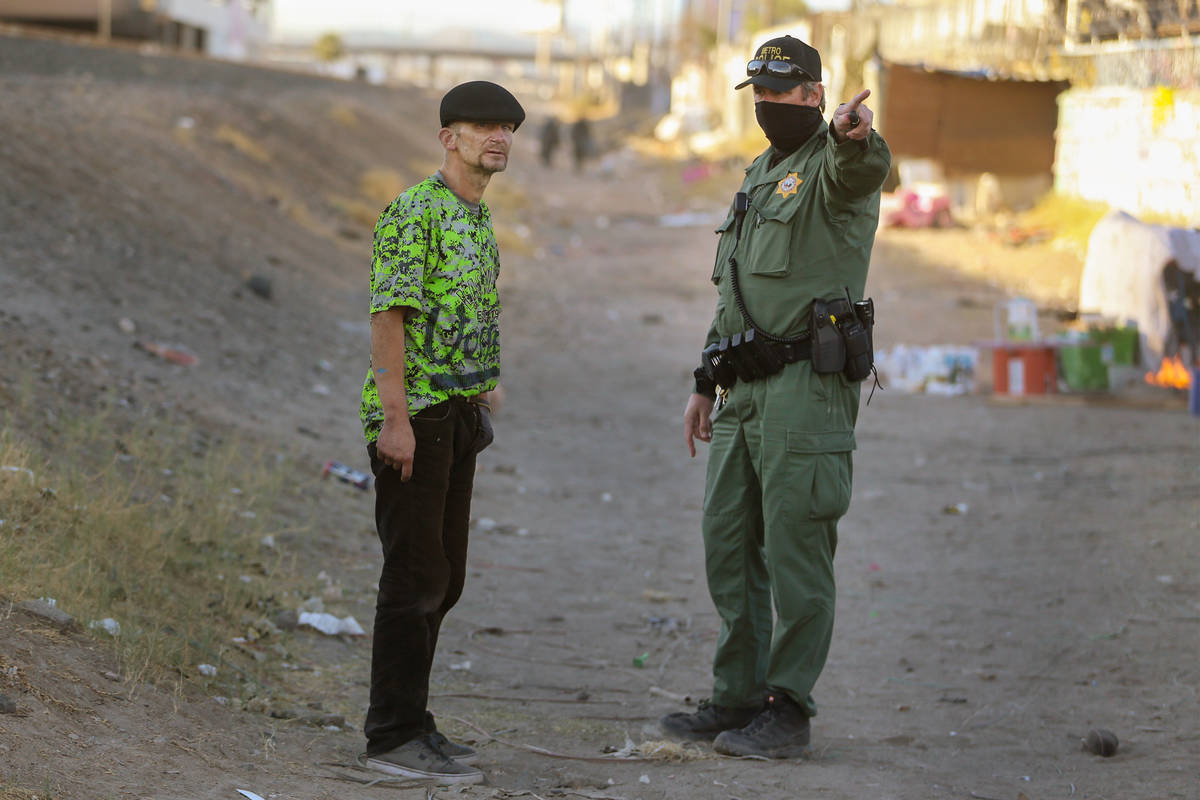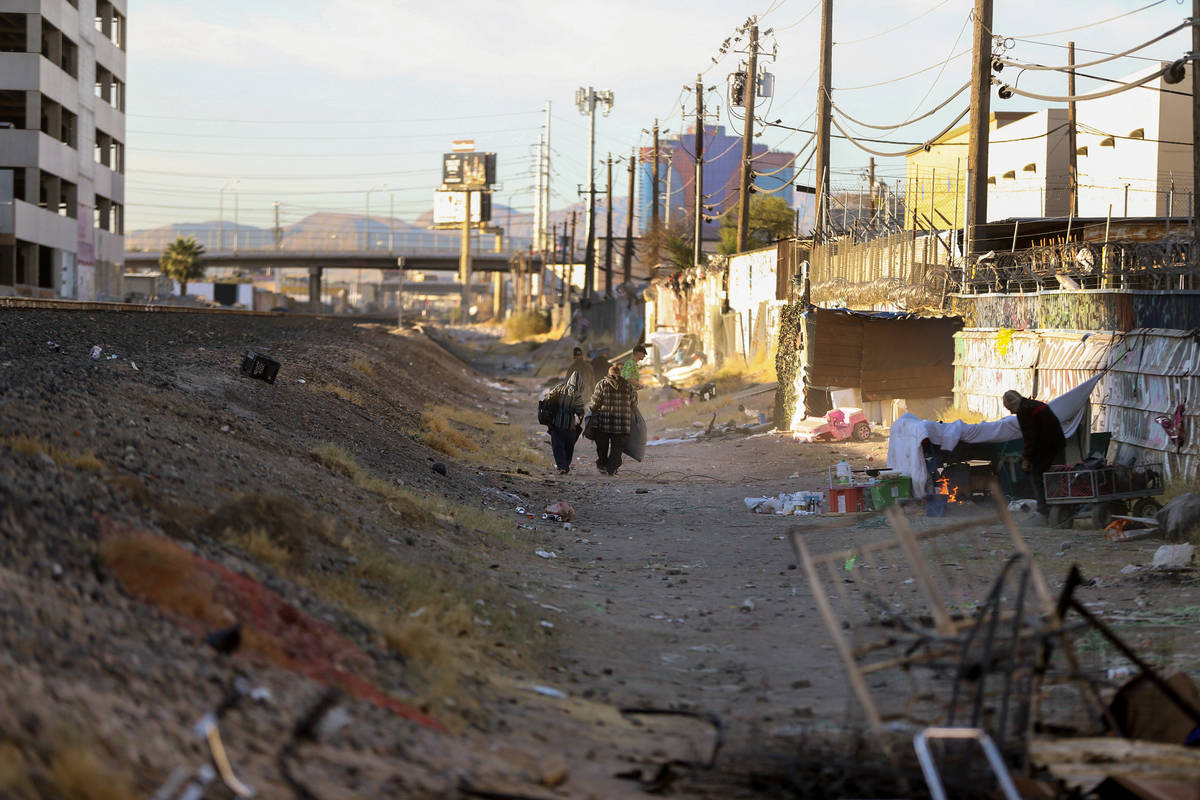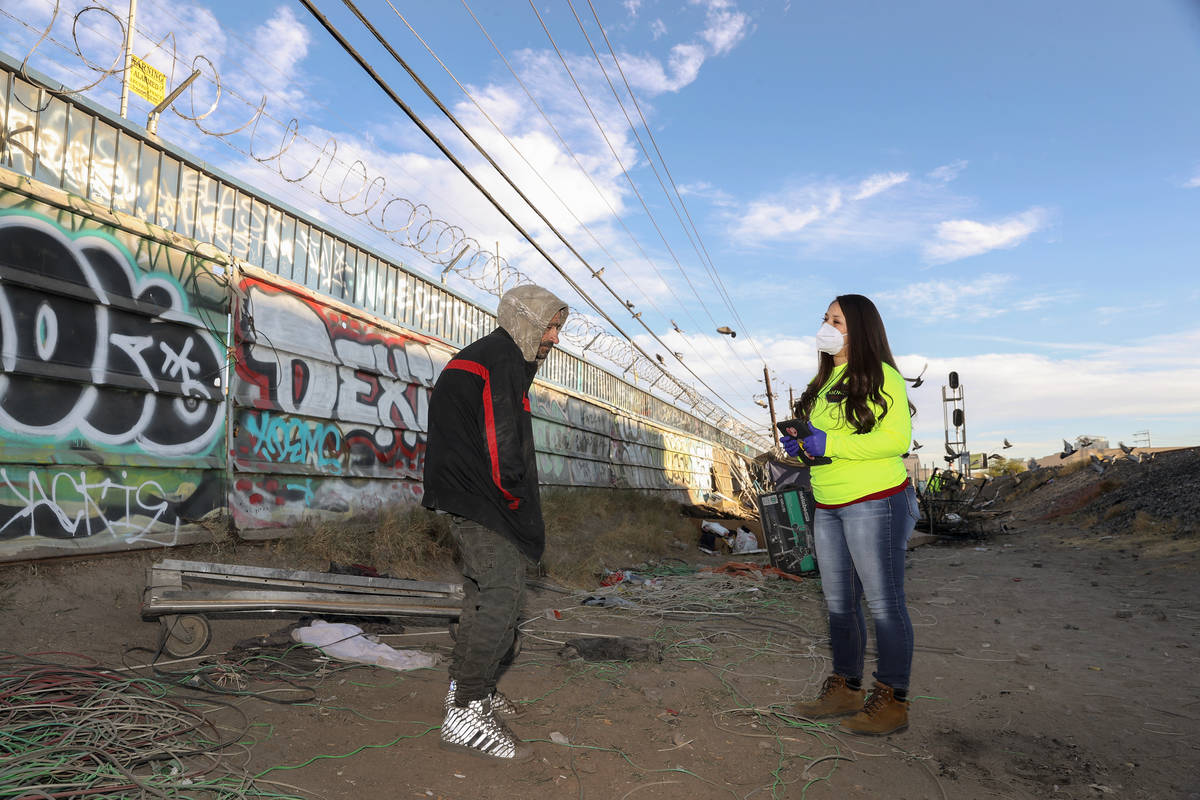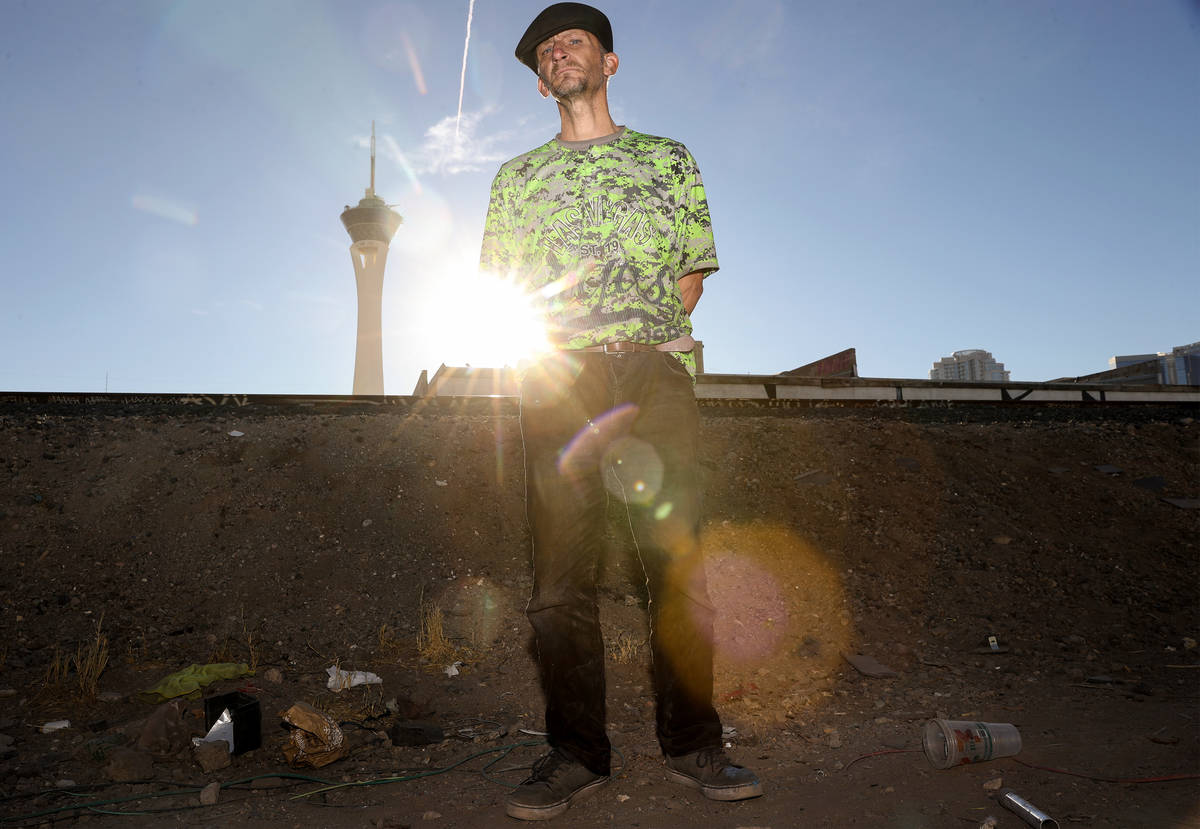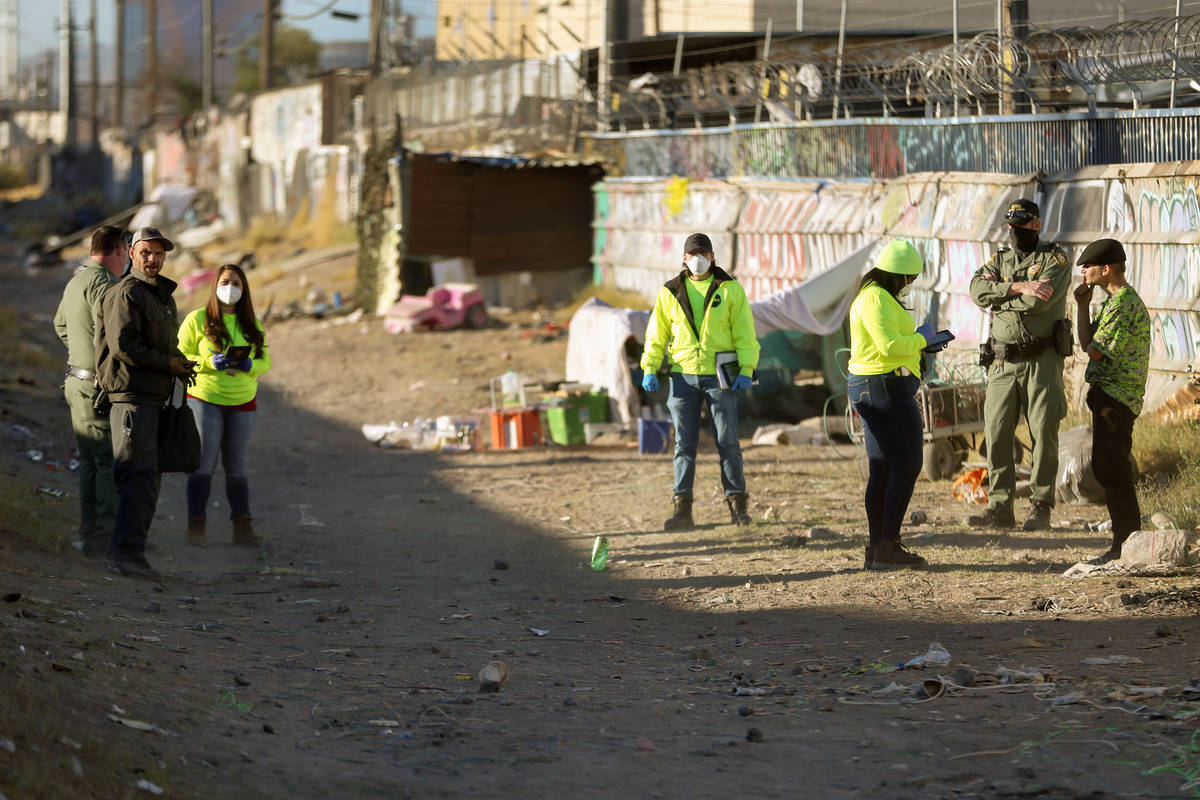New program in Clark County offers housing instead of arrest
A new program offers homeless people who would otherwise be arrested for minor crimes a choice: Face a charge or get help and housing today.
The goal is to keep them out of the criminal justice system altogether.
“So they have no charges, and we screen them and try to find out what is the root driving issue and address that,” said DeNeese Parker, Clark County specialty courts administrator. “Giving people that option empowers them to change their own life, versus taking a charge and then seeing where it leads in the system.”
The diversion program, called Law Enforcement Intervention for Mental Health and Addiction, started in February and is a partnership between Clark County District Court and the Metropolitan Police Department.
In July, the program received a $750,000 grant from the state for a yearlong pilot phase.
The program lasts nine to 12 months and partners with local service providers to help address mental health issues and addiction and connect people with job training and housing.
And it saves money. It costs $195 a day to house someone in jail, while the rate for transitional housing with case management is $30 a day.
“Law enforcement can’t do this alone, and we know we can’t arrest our way out of things,” said Sgt. Jason Santos, who spearheaded the program. “By partnering with different agencies so people don’t go into this endless cycle, we’re able to bring them back into the community and assist them in a way that we haven’t done before.”
About 50 percent of the program’s referrals come through Metro’s Homeless Outreach Team, and the most common diversionary charge is trespassing, Parker said.
So far, 127 people have been referred to the program, which has 74 active participants. The program has also placed 111 people in transitional housing with case management and 16 in residential inpatient treatment services. Eight participants became employed in October alone.
If someone drops out, Metro tries to follow up, Santos said. Dropouts get three opportunities to stay in the diversion program.
If they choose not to stay or no longer qualify and were arrested in the city of Las Vegas, they could qualify for the Fresh Start program in Las Vegas Municipal Court to “have a continuum of care with judicial oversight,” Santos said.
Fresh Start
Hearing Commissioner Shannon Nordstrom kicked off Fresh Start last year and is one of the first judicial officers in the community to see a housing-first program work for homeless defendants.
When she started in Department 20 in October 2018, she said, she saw many homeless people come in with traffic, pedestrian and bicycle violations. When many of the same people returned to her courtroom, it became apparent that a different approach was needed.
She began to build connections with Metro and refer people to community service providers. By March 2019, she already had about 40 people on the alternative path she created. In April 2019, she grouped everyone together on the same calendar, and Fresh Start became an official program.
Since then, she’s seen 24 successful completions. She currently has 10 defendants who have achieved stable housing and income and will eventually get their fees waived and cases closed.
The program has had such success that in September, she started a pilot program, Fresh Start 5, in Department 5, where she sees people with misdemeanor charges such as possession of a shopping cart, trespassing or petty larceny.
“They can transform their lives, and the programs really are about helping them address their barriers to help them get to a better place,” Nordstrom said. “They have to do the work, but we provide the support system.”
Nordstrom said the key is connecting services to people who haven’t been able to do it on their own.
“All their stories are different. For some, life just happened to them, and they just need help back on their feet,” she said. “But we don’t have to be defined by our past. All that matters is moving forward.”
Nordstrom said an important aspect of the program is that it is voluntary.
“We have to focus on the people that we can help,” she said.
‘Interrupted the cycle’
Sgt. Tim Frederick, who oversees the Metro Homeless Outreach Team, said he understands that point well.
“There’s going to be times where people fall back into it,” he said. “But our providers and our officers understand that and are willing to help time and time again.”
On a recent cold November morning, Frederick went out with the outreach team to an encampment off Oakey Boulevard and Industrial Road. A fire made to keep residents warm had erupted earlier that morning, and the boots of officers and social service providers crunched over people’s charred belongings.
They encountered Faythe Simpson Zhang, whom they had seen weeks earlier when they helped her check into a housing program.
But now she was back, clinging to her Manchester terrier mix named Little Man.
“You OK?” Officer Walter Tlockowski asked Simpson Zhang. “Do you want to talk to outreach? They’re here.”
Simpson Zhang, 42, said she’s been on and off the streets since she was 8. The streets are all she knows. But on this day, she was ready for another chance. Officers made calls to try to get her back into the program.
“Every place I’m taken to, I run. It’s just the fear of not knowing what’s to come,” she said. “But they always come back and look for you. It’s nice knowing that people care.”
Another frequenter of the area, 46-year-old Michael Jason Michael, said the team has helped keep him out of jail. Instead of being arrested, he went to treatment for his heroin addiction.
“It interrupted the cycle for a bit and planted the seed,” he said.
Contact Briana Erickson at berickson @reviewjournal.com or 702-387-5244. Follow @ByBrianaE on Twitter.



